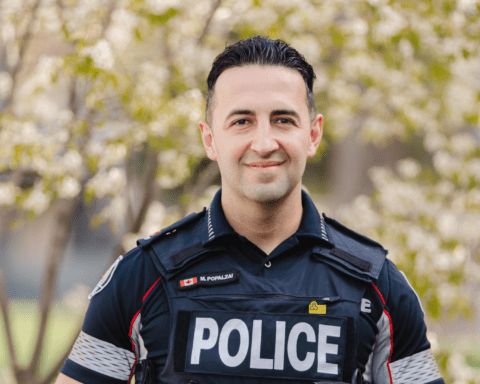A virtual workshop series meant to address health inequities and differences in power dynamics within South Asian communities in Canada is under way, with sessions throughout April.
Led by the South Asian Health Research Hub (SAHRH), a team of public health experts, the series teaches people in the South Asian diaspora anti-oppression training, and aims to break down barriers built by systemic racism, caste-based discrimination, and sexism.
The SAHRH team will use Future Search, an action-driven planning strategy, to engage in critical discussions and create a collective of people to collaborate with and design anti-oppression training. The workshop sessions are held on April 18, 20, 25, and 27.
Ananya Banerjee, co-leader of the workshop and an assistant professor in the Department of Epidemiology, Biostatistics and Occupational Health at McGill University noted that not all immigrants have the same experience, even when they belong to the same community.
“Given that the South Asian communities [have] been here for three or four generations, we can’t assume to have the same experiences just because of our ethnic origin,” Banerjee said. “Especially if you’re a newcomer, versus [if] you’ve been here for 20 years, versus someone like myself, who has been born and raised here; our opportunities greatly differ.”
A well-educated, highly-paid South Asian person living in the University of Toronto campus and sending their children to top schools will have better access to medical care and financial wealth compared to a newcomer living in a neighbourhood with food deserts, and struggling for health benefits and livelihood, she noted as an example.
As a result, many South Asians within the same community enjoy power and privileges that others may not have. Discrimination based on gender, race, and caste adds to the mix.
Background
Banerjee has been researching health inequities in South Asian communities for decades. Her focus has been on the higher burden of diabetes in diaspora groups in Ontario.
In her research, Banerjee found that the prevalence of diabetes differs based on ethnic origins, socio-economic differences, and language barriers between immigrant communities.
For example, her findings show Sri Lankan immigrants have the highest rates of diabetes at 27 per cent, compared to immigrants from India, which is about 18 per cent. People from Bangladesh also have a higher proportion of diabetes compared to those from India and Pakistan. Bangladeshi and Sri Lankan immigrants also tend to live in poorer communities where they face language barriers and less access to health care.
“This was when I started to realize that we need to look at the concept of intersectionality if want to offer healthcare to them,” Banerjee said.
Her research fuelled the creation of BETTER Women, a health coaching program to help the South Asian women in the Peel Region with a higher rate of chronic diseases. Health coaches in this program are aware of differences in privilege for people with different backgrounds.
“She may have just came to Canada or is a newcomer living in poverty, experiencing food insecurity or trying to find work,” Banerjee said. “We have to understand that simply encouraging them to lead a healthy lifestyle may not be possible if they are grappling with poverty or trauma.”
Starting the conversation
Banerjee’s research was also used to design the South Asian Anti-Oppression Project (SAAOP) — the overarching project funded by the Canadian Institutes of Health Research in which the workshop series is the next phase.
SAAOP is a research study involving South Asian diasporas in Quebec, Ontario, Alberta, and British Columbia, and began in August 2022. The project aims to understand health inequities experienced or witnessed by South Asians, including service providers, community leaders, policymakers, lawyers, and people in media advocacy, and the populations they serve.
Twenty-three people who have been interviewed by researchers thus far have made note of how their experiences differ based on intersecting aspects of their past, like intergenerational trauma and immigration histories, according to Maryam Parvez, a public health project manager at the research hub. These experiences were relayed by health care and social workers who regularly interact with South Asian people.
“For example, an international student, who’s also a female, and working to send back money to her family in India, Pakistan or Sri Lanka, have stressful experiences,” Parvez said. “Add to this: her academic credentials from her home country might not be considered valid here. So [it’s] just [about] all of those experiences and how it intersects, impacts her health.”
The workshop is modelled on the San’yas Indigenous Cultural Safety Training Program, which began as a self-paced online cultural competency training for health professionals in British Columbia and is now available nationwide.
Parvez said the SAHRH has reached out to key community organizations like Sher Vancouver, Alliance for South Asian Aids Prevention , Punjabi Community Health Services, and the Council of Agencies Serving South Asians to share information about the workshops with their members.
“If we don’t start these conversations now, those who are most vulnerable and marginalized are going to fall behind,” Banerjee said.
Amrita is an NCM-CAJ Collective Member, journalist and content writer, with nearly a decade of experience in content development and journalism in three countries. She started her career as a journalist with a leading daily, The Statesman, in India. She has also led content and editorial teams for several web content management firms. Amrita served as a Communications and Content specialist for some non-profit organizations like the American Red Cross after her move to the U.S. Based out of Toronto, she continues to follow her passion by reporting on human rights violations, education, crimes, inequality and community engagement. Amrita holds a Post Graduate Diploma in Print Journalism from Chennai, India.





